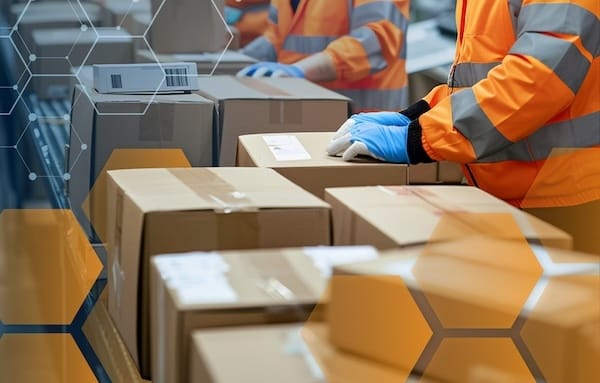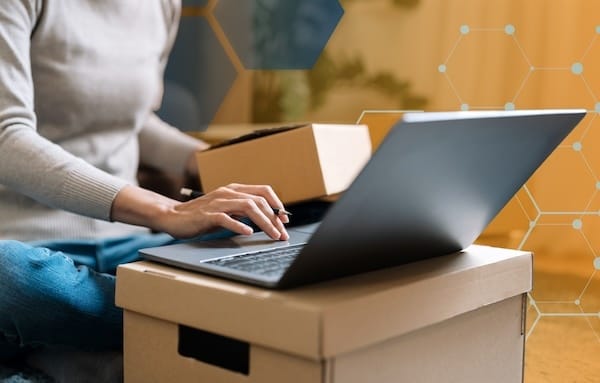- Warehouse Wisdom. Weekly.
- Posts
- Warehouse Wisdom. Weekly. 08/15/2025
Warehouse Wisdom. Weekly. 08/15/2025
Only the most relevant news for SMBs to improve logistics – picked, packed, and delivered without the bias.

Happy Friday!
Trump and Xi extended their trade truce for another 90 days—showing that even trade warriors do math when bilateral commerce collapses by 50%. Meanwhile, ChatGPT and Claude are becoming the new storefronts of e-commerce, threatening billions in retail media revenue. And DHL committed £550 million to deploy 1,000 robots, proving collaborative automation works when workers embrace the technology.
This week: last-minute trade extensions that solve nothing, AI platforms bypassing traditional e-commerce entirely, and warehouse robots that workers actually want to collaborate with. Spoiler alert: when tech companies make more strategic sense than government policy, your supply chain assumptions need updating.
Global Logistics
US-China trade truce buys 90 more days while nobody fixes anything

Trump signed an executive order Monday extending the US-China tariff pause until November 10th, just hours before duties were set to jump from 30% to potentially 145% on Chinese goods. The last-minute extension shows that even the most aggressive trade warriors eventually do math—because watching bilateral trade collapse by 50% tends to focus minds on economic reality rather than political theater.
Apple dodged an $1.1 billion quarterly tariff bullet with the extension, having already absorbed $800 million in Q3 duties despite shifting significant iPhone production to India. The company's supply chain chess game continues: Pro models still ship from China while non-Pro units come from India, demonstrating how even Tim Cook can't rebuild global manufacturing networks faster than politicians can tweet trade threats.
But here's the kicker: US imports from China fell nearly 50% year-over-year in June, with bilateral trade down 15-20% overall despite the "moderate" 30% tariff rates. For logistics planners who thought they could adapt to "temporary" trade disruptions, the November deadline just moved the uncertainty timeline—which means that in trade wars, even victories feel like elaborate postponements of inevitable pain.
Try inFlow Free—$499 Off for a Limited Time
Get started for free and see how simple inventory management can be.
inFlow helps you stay on top of inventory, track costs with precision, and protect your bottom line.
You’ll always know how much you’re spending, what you’re making, and where you can save.
It also simplifies inventory, orders, shipping, and barcode scanning in one easy-to-use system—rated “easy to use” by 93% of users.
Rated 4.6 stars across 500+ reviews on Capterra and named a top pick in multiple competitive comparisons
inFlow connects with Shopify, Amazon, QuickBooks, UPS, and 90+ other tools, so everything works together without the manual work.
Try it free and, for a limited time, save $499 when you upgrade with code EASY499.
An inFlow specialist can show you how to simplify inventory from day one
✅ See how others are navigating change in our case studies
🚀 Compare plans on our pricing page
Small Parcel Freight
Tariff disruption meets delivery automation as carriers navigate chaos

Import cargo volume for major ports is projected to drop 5.6% annually due to tariff impacts, with retailers frantically trying to balance inventory costs against duty payments that can exceed product values. For small businesses already operating on razor-thin margins, the choice between paying 120% tariffs or abandoning shipments isn't really a choice at all.
Meanwhile, logistics carriers are deploying automation at unprecedented scale to manage complexity, with Class 8 truck orders up 42% month-over-month despite ongoing freight softness. The cargo that does move requires more sophisticated routing, real-time duty calculation, and flexible fulfillment networks—which explains why technology investment is accelerating even as volumes decline.
USPS reported a $3.1 billion quarterly loss, worse than last year's $2.5 billion, highlighting how even government logistics operations struggle with the new normal. For private carriers banking on e-commerce growth to save their margins, the message is clear: efficiency improvements aren't optional anymore—they're survival requirements.
Marketplace
Temu and Shein defy tariff predictions while toy shortages loom

Despite predictions of tariff-induced collapse, Temu maintained 50% growth reaching $35 billion GMV in H1 2025 while Shein hit $27 billion with 15-20% growth, showing that diversification beats dependency every time. Both platforms shifted from cross-border shipping to pre-stocked US warehouses, discovered they could charter their own planes and containers, and reduced US market dependence to 30-35% of total GMV—in other words: we saw this coming and had backup plans.
Meanwhile, the toy industry faces what Basic Fun CEO Jay Foreman calls an "absolute inevitability" of holiday shortages after 60 days of paused manufacturing during April's tariff chaos. Manufacturers who shut down production lines during the 145% tariff spike are now playing catch-up in an uncertain climate, while retailers refuse to "gamble on extra inventory"—meaning that supply chain resilience requires making hard decisions when politicians tweet trade threats.
In legal accountability theater, Temu faces lawsuits over MF DOOM knockoff merchandise while Brazil's retail sales fell 0.1% in June for the third consecutive month, signaling that even expansion markets aren't guaranteed wins. For marketplace operators banking on global growth to offset US challenges, the lesson is clear: platform compliance and economic fundamentals matter more than market size projections.
Warehouse Tech
DHL deploys 1,000 robots while sustainability gets serious engineering

DHL just committed £550 million to deploy 1,000 additional robots across UK operations, demonstrating that when you're the world's largest logistics company, you can afford to bet big on collaborative automation. The deployment features Boston Dynamics' Stretch bots handling 700 packages per hour and Robust.AI's Carter units delivering 60% productivity gains—showing that the secret to successful automation is buying robots that workers actually want to work with instead of fear being replaced by.
The timing couldn't be better, as Honeywell partnered with Teradyne Robotics to scale AMR deployments across the Americas and Europe. With Teradyne's portfolio including 110,000 robots already deployed globally, the collaboration targets the integration headaches that have plagued warehouse automation—because nothing says "enterprise solution" like making your MiR1200 Pallet Jack actually communicate with existing warehouse management systems.
Meanwhile, DHL's sustainability push involves actual engineering: launching hydrogen-powered trucks in Japan with 260-kilometer range and zero carbon emissions. The pilot targets DHL's goal of 30% sustainable fuel adoption by 2030, showing that green logistics works when you invest in fuel cells rather than press releases—translation: we're actually solving the problem instead of just talking about it.
Logistics Vitals
AI checkout threatens traditional e-commerce platforms

ChatGPT and Claude are becoming the "new homepage" of commerce, threatening to reroute billions in retail media revenue away from traditional e-commerce platforms. The shift targets more than payment processing—it's about controlling pre-sale customer attention in a market where Amazon's retail media business generates more profit than Prime or AWS from the $50 billion global ad ecosystem inside shopping platforms.
Only 14% of consumers satisfied with current e-commerce experiences according to IBM research, driving demand for AI-powered shopping from discovery to fulfillment
Perplexity already processes purchases directly through PayPal for concert tickets and travel, proving AI checkout is operational and expanding
Amazon's retail media business generates more profit than Prime or AWS from platform ads—revenue now at risk as AI agents control pre-sale attention
Disruption targets "watch time" economics as retailers relying on browsing face threats when AI compresses decision-making from hours to minutes
OpenAI reportedly partnering with Shopify on integrated checkout where merchants pay commissions to complete transactions within ChatGPT
Warehouse Quick Deliveries
From rail meltdown fears to reverse logistics gold mines
FedEx Dataworks generates only $10 million annually despite 600-person staff costing hundreds of millions—proving that brilliant ideas need buyers, not just builders
Cargo thefts jumped 33% in Q2 with California accounting for 38% of incidents as tariff-driven import surges create more targets around LA/Long Beach ports
Home Depot closes Missouri distribution center affecting 61 workers while opening flatbed facilities for pro deliveries—proving network optimization involves both additions and subtractions
AI adoption remains in "patch-and-enhance" phase as carriers deploy bolt-on solutions that can't access real-time data or adapt mid-journey to changing conditions
“The old game was about who could close the sale. The new game is about who controls the pre-sale and gets the user's attention first.”

